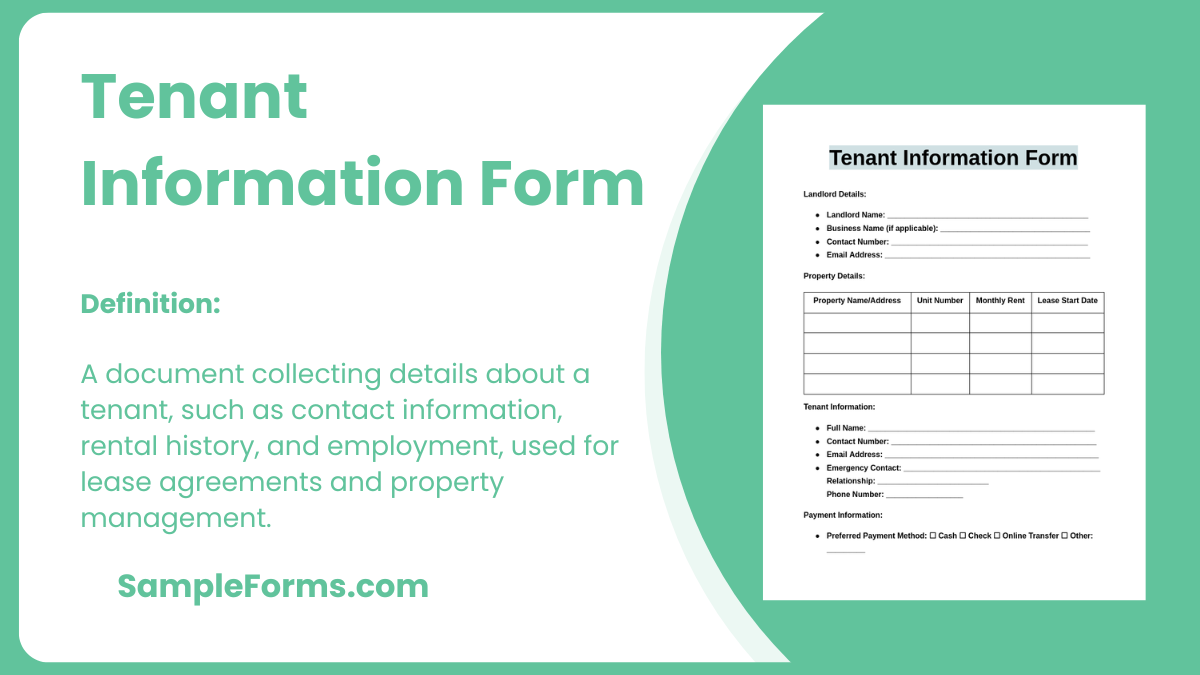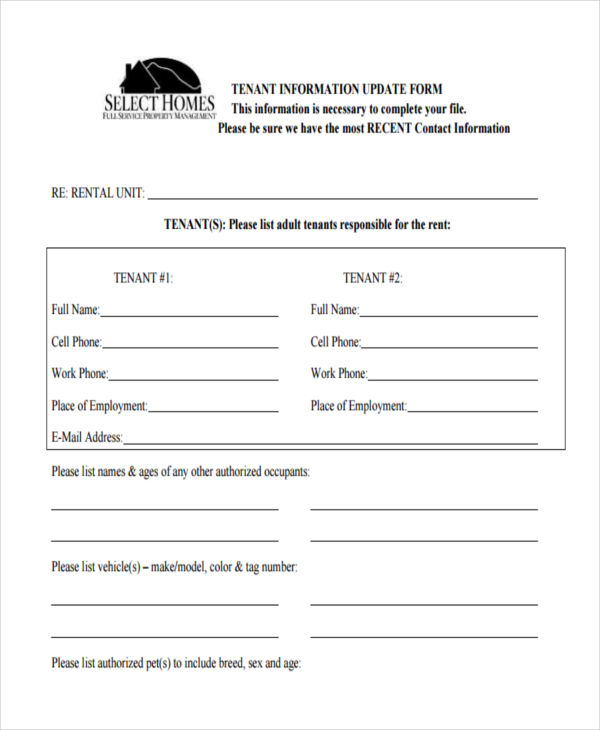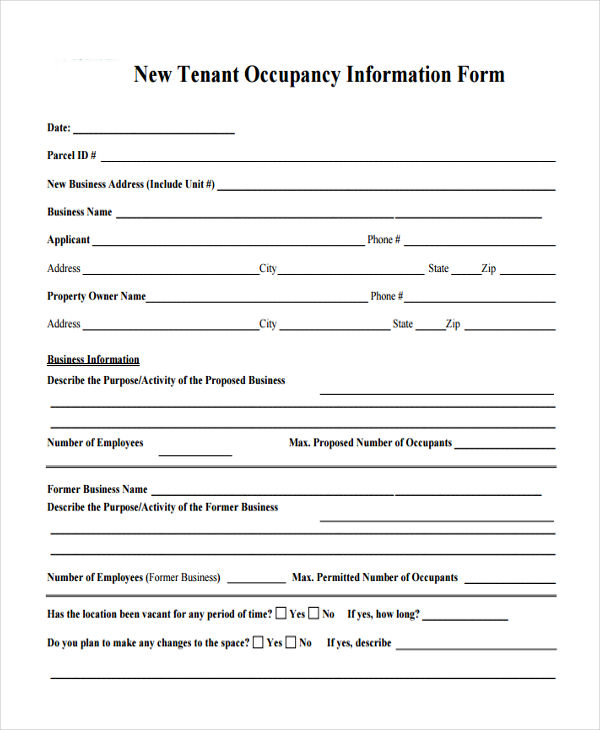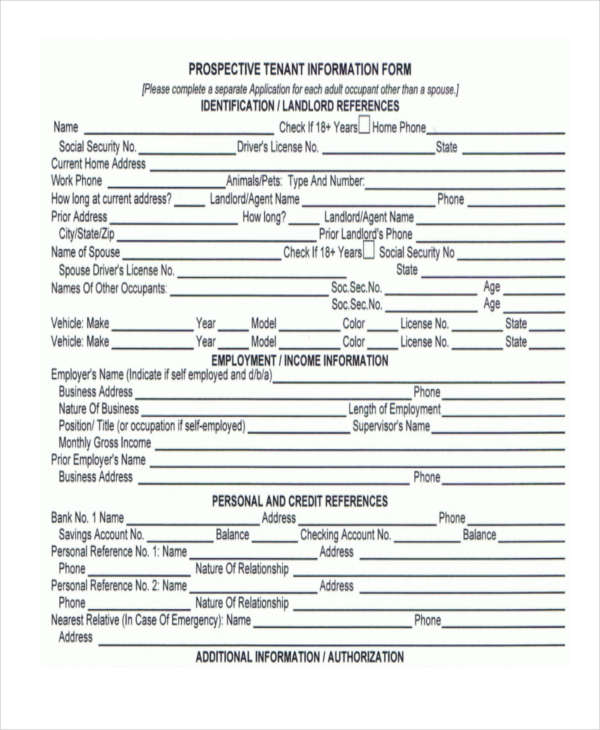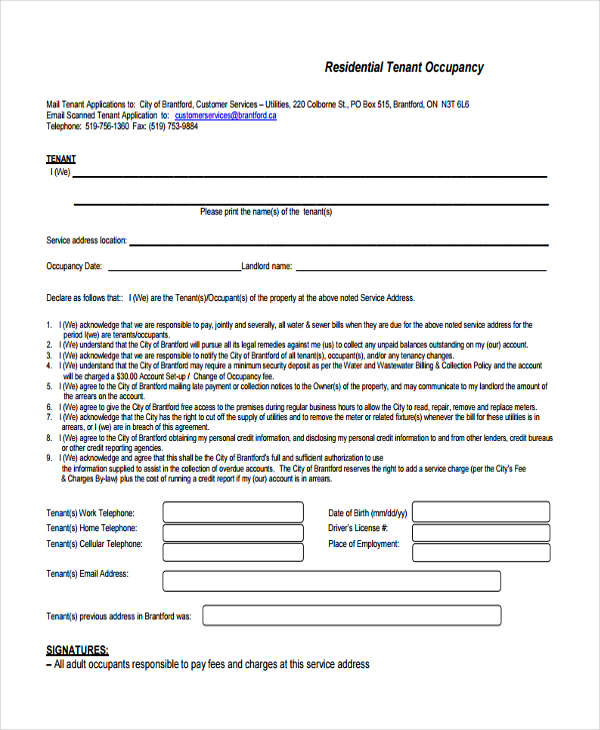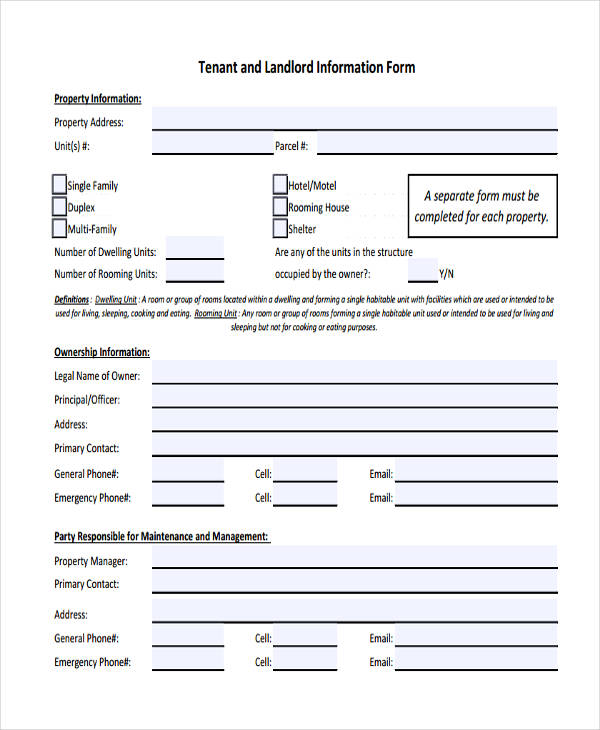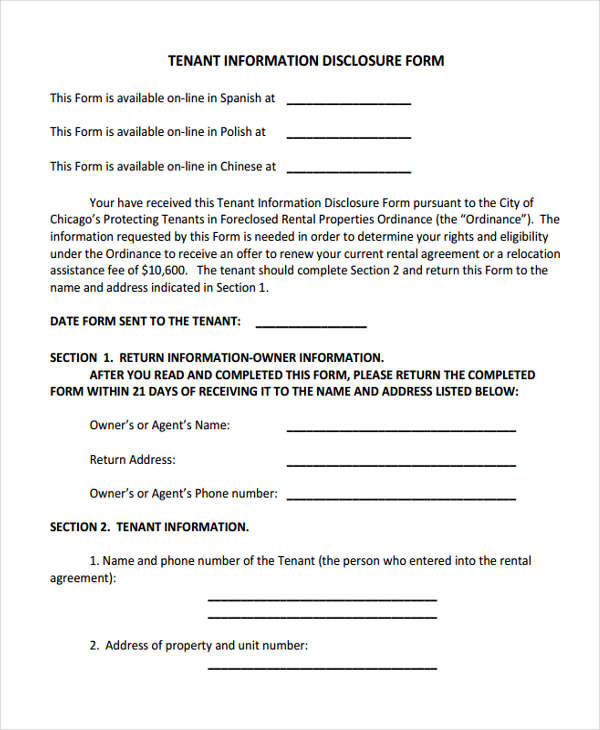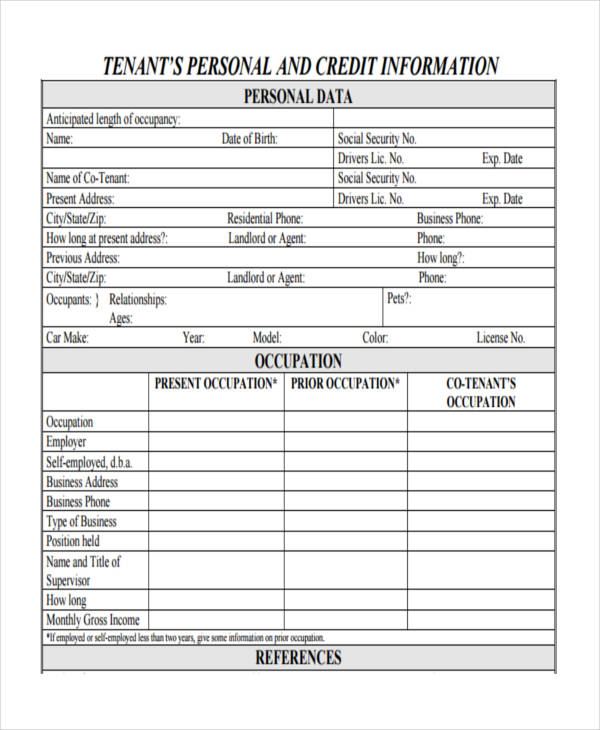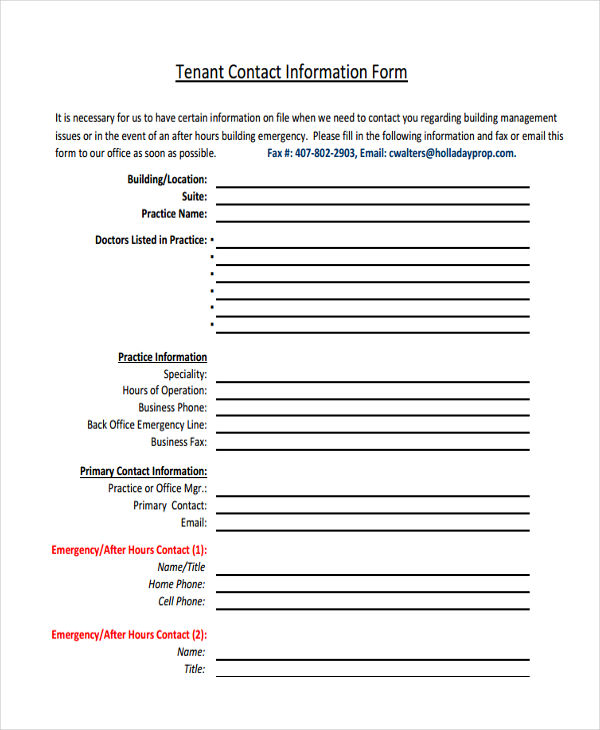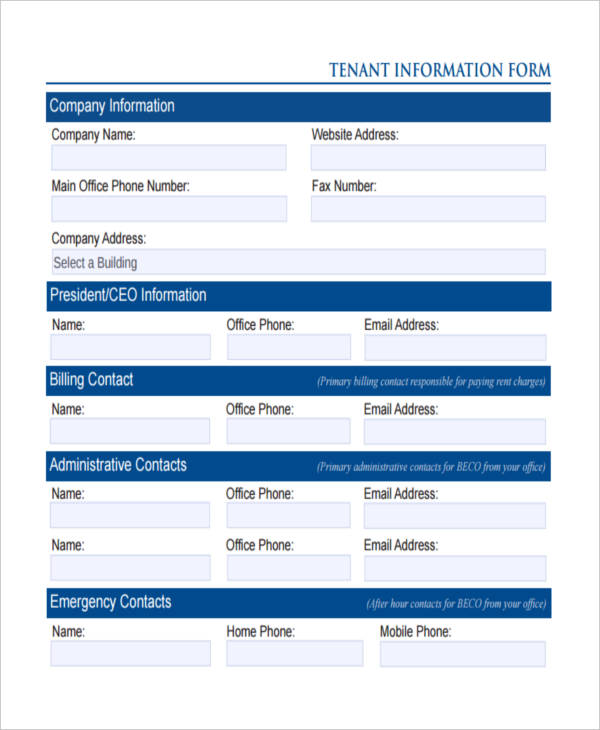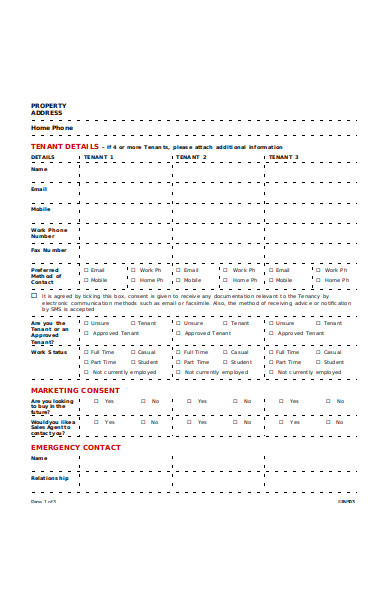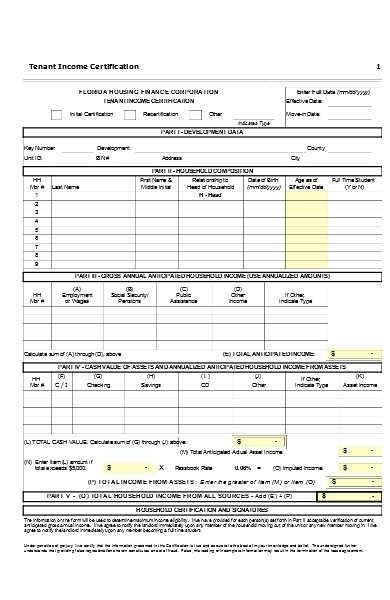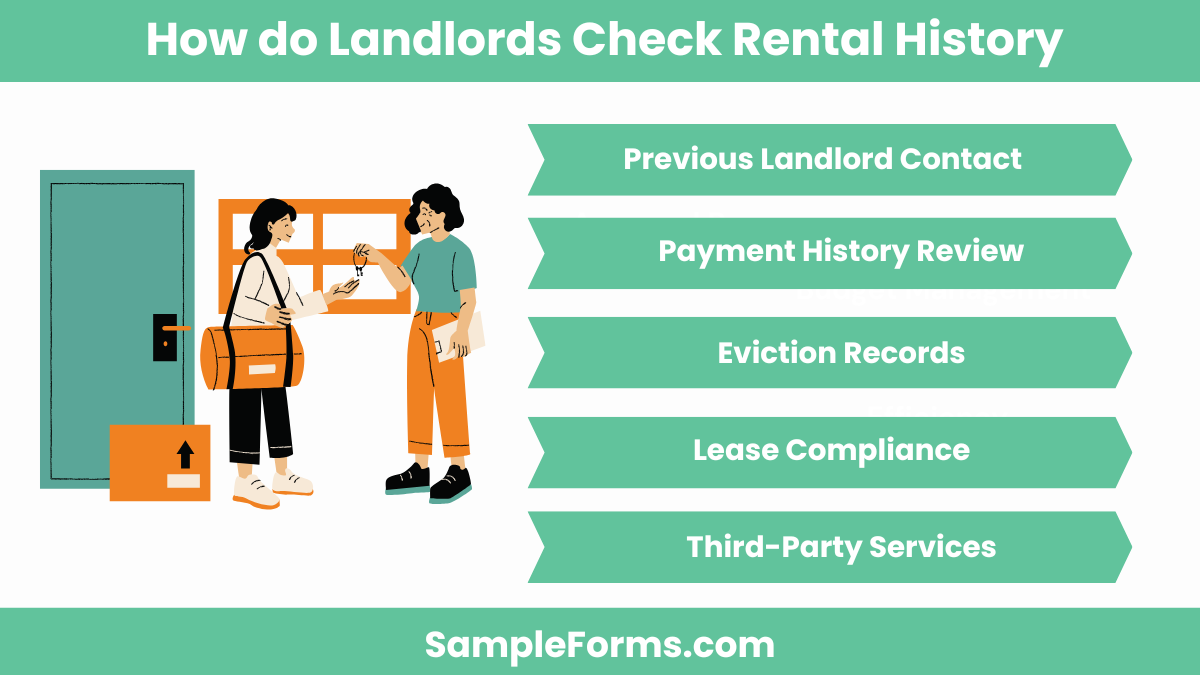A Tenant Information Form is a crucial document for landlords to collect and maintain accurate details about tenants. This guide offers comprehensive insights into its creation, uses, and benefits. Including examples, it ensures landlords can effectively manage tenant-related matters while complying with legal requirements. A well-prepared Information Form simplifies communication, provides clarity, and enhances landlord-tenant relations. Whether you’re a new landlord or an experienced property manager, this guide will help you understand the purpose and essential elements of a Landlord Tenant Form, making tenant documentation seamless and effective.
Download Tenant Information Form Bundle
What is Tenant Information Form?
A Tenant Information Form is a document used by landlords to collect essential details from tenants, such as contact information, emergency contacts, and lease-related data. This form ensures proper record-keeping, smooth communication, and legal compliance. It typically includes fields for personal information, references, and employment details. A clear and concise Tenant Information Form aids in resolving disputes, enhances security, and simplifies property management by ensuring both parties have access to accurate information.
Tenant Information Format
Tenant Details:
- Full Name: ___________________________
- Date of Birth: ___________________________
- Identification Type and Number: ___________________________
Contact Information:
- Current Address: ___________________________
- Phone Number: ___________________________
- Email Address: ___________________________
Employment Details:
- Employer Name: ___________________________
- Job Title: ___________________________
- Monthly Income: ___________________________
- Employer Contact: ___________________________
Rental History:
- Previous Address 1: ___________________________
- Landlord Name/Contact: ___________________________
- Reason for Leaving: ___________________________
Additional Information:
- Pets: ___________________________
- Other Occupants: ___________________________
- Special Requests: ___________________________
Authorization:
“I authorize background and credit checks as required.”
Signature: ___________________________
Date: ___________________________
Residential Tenant Information Form
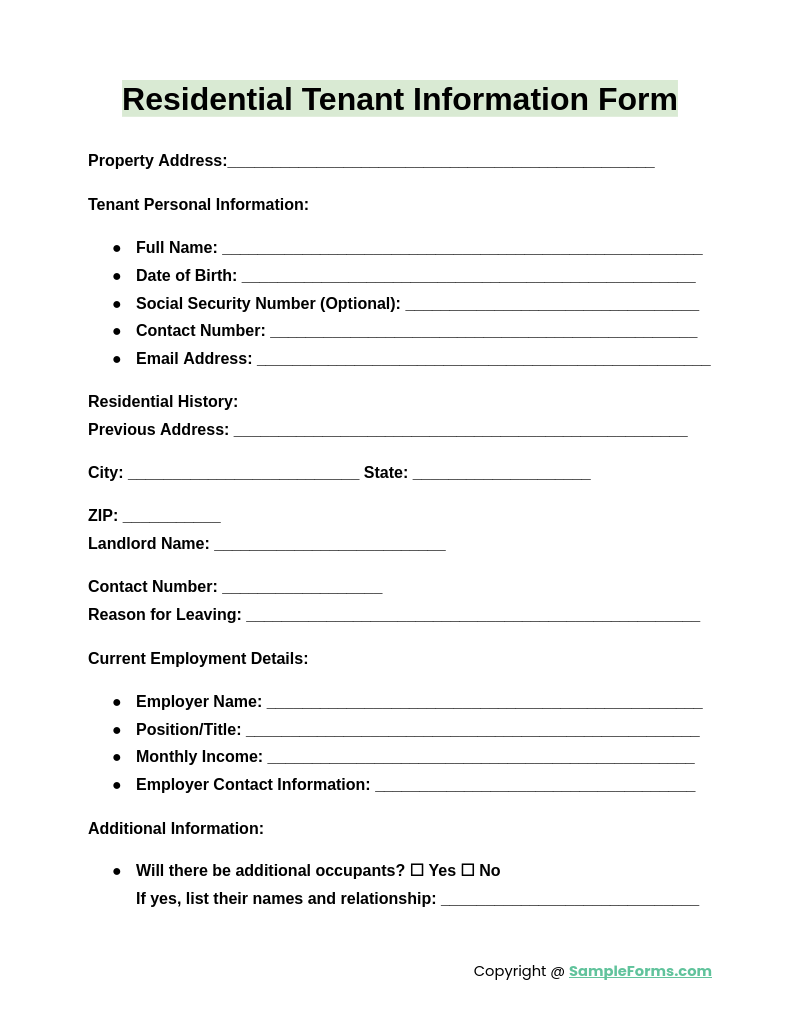
A Residential Tenant Information Form collects tenant details for residential properties. Similar to a Personal Information Form, it includes name, contact details, and references for smooth lease management and better tenant-landlord communication.
Commercial Tenant Information Form
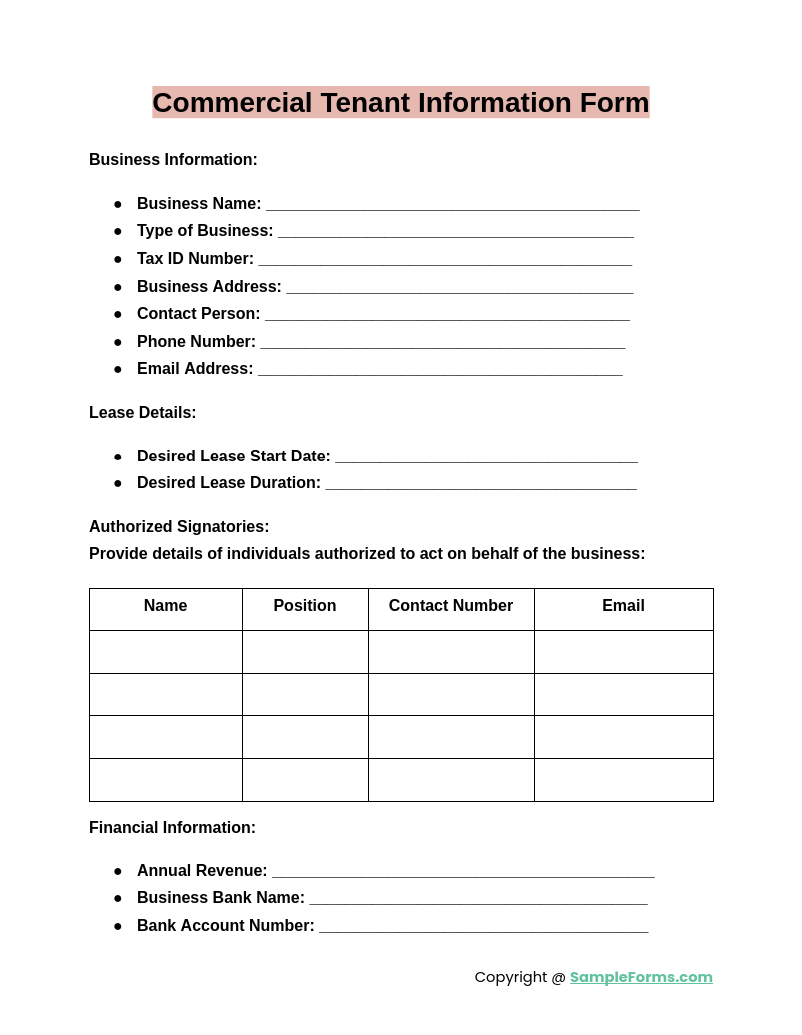
The Commercial Tenant Information Form is tailored for business properties, gathering essential tenant details. Like an Employee Information Form, it ensures accurate records of business operations and lease terms, promoting professional property management practices.
Tenant Information Form Online
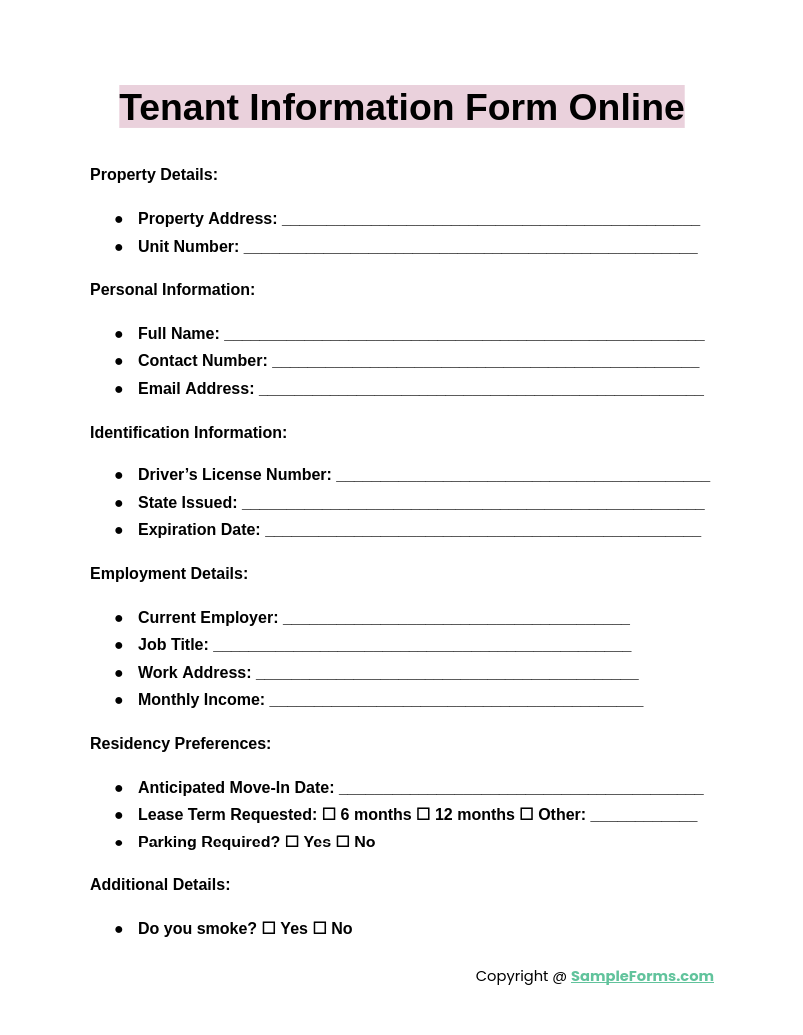
A Tenant Information Form Online streamlines tenant data collection digitally. Similar to a Student Information Form, it includes interactive fields for efficient data entry, making it easy for tenants and landlords to stay organized.
Landlord Tenant Information Form
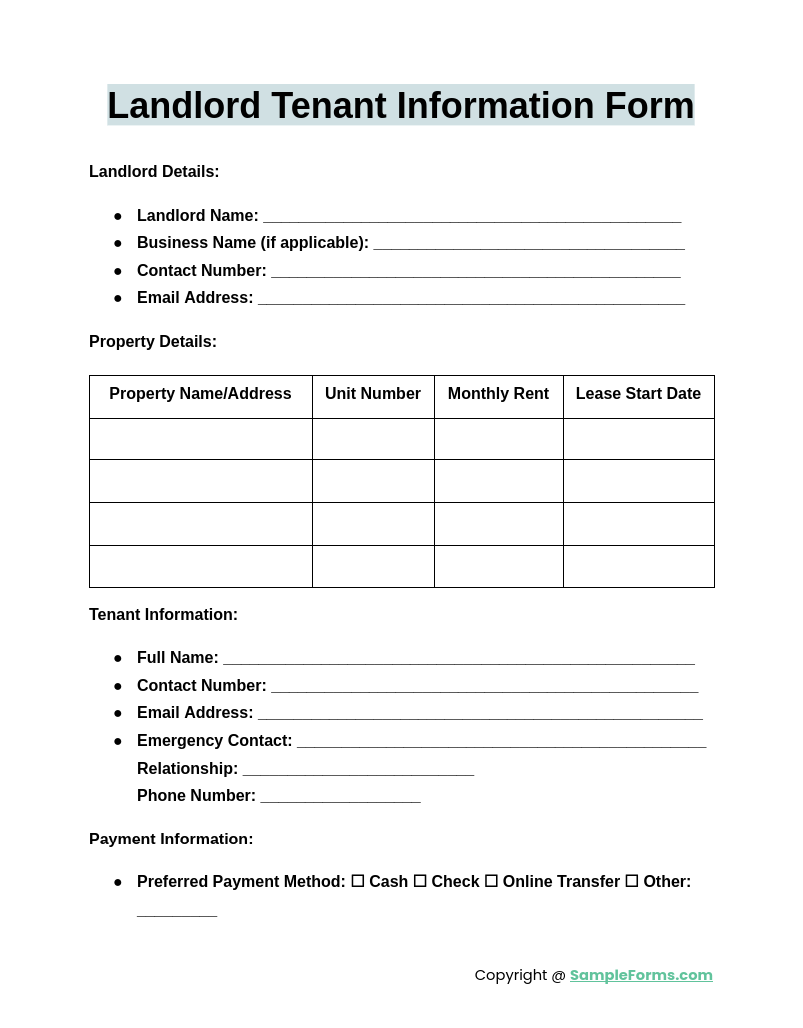
A Landlord Tenant Information Form bridges tenant-landlord interactions by recording essential details. Like a Contact Information Form, it ensures reliable communication, accurate lease terms, and effective resolution of potential tenancy issues.
Browse More Tenant Information Forms
Tenant Information Update
New Tenant Occupancy Information
Prospective Tenant Form
Residential Tenant Information
Tenant and Landlord Information
Tenant Information Disclosure
Tenant Personal and Credit
Tenant Contact Information
Sample Tenant Form
Printable Tenant Information Form
Tenant Income Information Form
How do landlords verify tenants?
Landlords verify tenants to ensure credibility, financial stability, and a good rental history. Key steps include:
- Identity Verification: Landlords use a Tenant Verification Form to confirm tenant identity through government-issued IDs and background checks.
- Credit Check: A tenant’s credit history is reviewed to assess financial stability and ability to meet rent obligations.
- Rental History: Contacting previous landlords helps evaluate the tenant’s behavior, rental payments, and lease adherence.
- Employment Verification: Employers are contacted to confirm job stability and income reliability.
- Reference Check: References listed on the tenant’s application are reviewed for character and reliability assurance.
How do landlords check your rental history?
Landlords check rental history to evaluate your past lease behavior and payment records. Key steps include:
- Previous Landlord Contact: Landlords use the Tenant Complaint Form to assess disputes, late payments, or lease violations with prior landlords.
- Payment History Review: Reviewing rent payment records helps ensure a tenant’s reliability in meeting rent obligations.
- Eviction Records: Public records are checked for any past eviction proceedings or disputes.
- Lease Compliance: Previous landlords confirm adherence to lease terms, property care, and timely move-outs.
- Third-Party Services: Rental history reports from professional screening services provide comprehensive insights into tenant behavior.
Which documents should I request from a tenant?
Landlords must collect essential documents to verify tenant identity, financial stability, and rental suitability. Key documents include:
- Government ID: A valid photo ID is necessary for identity verification through the Tenant Agreement Form.
- Proof of Income: Pay stubs, tax returns, or bank statements ensure the tenant’s financial capability to pay rent.
- Employment Verification: A letter from the employer validates job stability and income reliability.
- Rental History: References from previous landlords confirm rental behavior and compliance.
- Credit Report: A tenant’s credit score and payment history assess financial reliability.
Why do landlords look at bank statements?
Landlords review bank statements to assess a tenant’s financial stability and ability to meet monthly rental obligations. Key reasons include:
- Income Verification: Bank statements, like a Tenant Application Form, confirm regular income deposits and financial capacity.
- Spending Habits: Reviewing spending patterns provides insight into financial management and priorities.
- Sufficient Savings: Savings accounts indicate financial readiness for emergencies or rent shortfalls.
- Payment History: Consistent payment of bills reflects responsibility and reliability.
- Fraud Prevention: Cross-referencing data prevents discrepancies and potential fraud.
How to fill out a rental verification form?
A rental verification form confirms tenant details for landlords or third parties. Steps to fill it out effectively include:
- Tenant Details: Enter the tenant’s full name, current address, and contact information on the Tenant Questionnaire Form.
- Rental History: Provide accurate information about previous leases, including landlord names, property addresses, and rental durations.
- Payment Records: Detail payment consistency and any history of late payments or disputes.
- Landlord Verification: Include your contact details for follow-ups or clarifications from the requesting party.
- Signature and Submission: Sign and date the form, ensuring all required fields are completed, and submit it to the requesting authority.
What is a tenant verification form?
A tenant verification form confirms a tenant’s identity, rental history, and financial stability, similar to a Medical Information Form ensuring accurate and verified details.
What is a tenant update form?
A tenant update form records changes in tenant details, like contact information or employment, ensuring records are current, much like a School Information Form.
What is a tenant authorization form?
A tenant authorization form grants permission to landlords to access sensitive tenant information, similar in function to a Parent Information Form for guardianship permissions.
What is a tenant statement?
A tenant statement provides a summary of lease terms, rent payments, and tenant obligations, akin to a Product Information Form detailing product specifications.
What is a landlord’s document called?
A landlord’s document, often a lease agreement, outlines property terms and responsibilities, similar to a Daycare Information Form specifying care terms.
What is a tenant renewal inspection?
A tenant renewal inspection evaluates property condition before lease renewal, ensuring compliance, much like a Property Information Form verifies property specifications.
Can a landlord refuse rental verification?
Yes, landlords can refuse rental verification due to privacy concerns or legal reasons, akin to restrictions in sharing Employment Information Form details.
Is it illegal to pretend to be a landlord reference?
Yes, impersonating a landlord reference is fraudulent and punishable by law, much like falsifying a Health Information Form.
Can a landlord watch your house?
Landlords can monitor their property but must respect tenant privacy laws, much like Buyer Information Form restrictions on personal data use.
What is considered bad rental history?
Bad rental history includes evictions, late payments, and lease violations, resembling incomplete or inaccurate data in a Vendor Contact Information Form.
A well-structured Tenant Information Form is vital for smooth property management and maintaining accurate records. This document helps landlords and tenants communicate effectively and resolve potential issues quickly. Whether you’re creating or updating one, using clear and comprehensive forms like the Emergency Contact Information Form ensures tenant safety and peace of mind. With proper use, these forms simplify lease administration, foster trust, and provide clarity in all tenant-related matters.
Related Posts
-
FREE 5+ Student-Athlete Forms in PDF | MS Word
-
FREE 11+ Athletic Participation Forms in PDF | MS Word
-
Employee Information Form
-
FREE 17+ The Uses of Information Forms in PDF | Ms Word | Excel
-
FREE 24+ General Release of Information Forms in PDF | Ms Word
-
Information Form
-
FREE 9+ Sample Information Request Forms in PDF | MS Word | Excel
-
FREE 8+ Sample Parent Information Forms in PDF | MS Word
-
FREE 10+ Sample School Information Forms in PDF | MS Word | Excel
-
FREE 9+ Sample Employment Information Forms in PDF | MS Word
-
Vendor Information Form
-
FREE 9+ Sample Emergency Information Forms in PDF | MS Word
-
FREE 8+ Sample Employee Information Forms in MS Word | PDF
-
Customer Information Form
-
Patient Information Form
